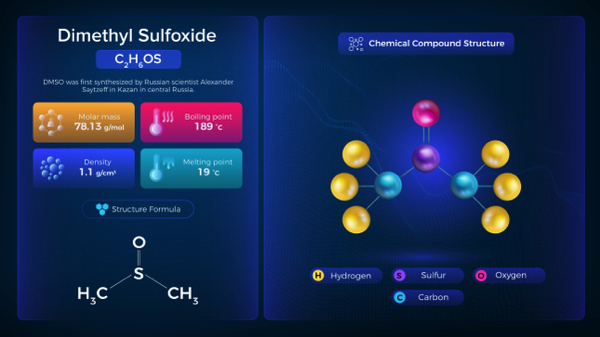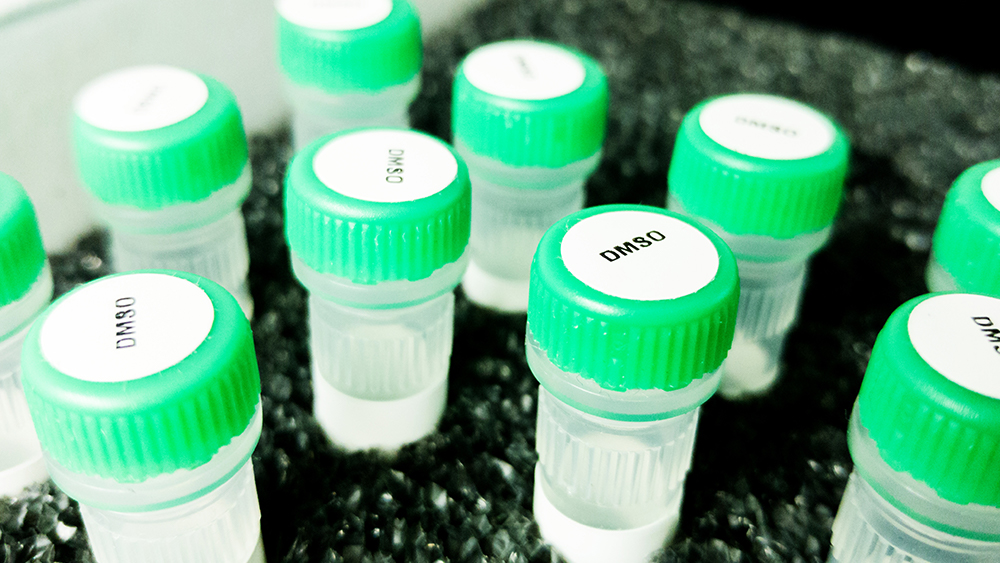 Parler
Parler Gab
Gab
- DMSO is a widely used chemical with a surprising ability to push cancer cells into a more mature, less aggressive state.
- It has shown promising results against multiple cancer types, including leukemia, lung, liver and prostate cancers.
- When combined with traditional drugs, DMSO can enhance treatment effectiveness while reducing toxicity.
- Its safety profile is strong and it is already approved for use in medical settings.
- Lack of financial incentives has stalled research, but growing interest in affordable alternative therapies may change that.
Teaching cancer cells to "grow up"
Cancer cells are like rebellious teenagers: wild, unregulated and uninterested in becoming responsible, functioning members of the body. Most cancer cells refuse to "differentiate," staying in a stem-like, rapidly dividing state. That's where DMSO comes in. In a landmark 2023 study published in Cancer Diagnosis & Prognosis, researchers showed that DMSO could trigger differentiation in leukemia cells, pushing them to mature into functioning white blood cells – cells that no longer divide recklessly or spread disease. Even more impressively, this wasn't limited to leukemia. In laboratory studies, DMSO showed similar effects across multiple cancer types, including:- Liver cancer, where DMSO not only slowed tumor cell growth but also reshaped their gene activity, potentially making them more visible to the immune system.
- Lung cancer, where DMSO enhanced the power of interferon-alpha, a common cancer drug.
- Prostate cancer, especially treatment-resistant forms, where DMSO lowered key receptors that fuel tumor growth.
DMSO as a cancer therapy partner
While DMSO alone shows promising anticancer effects, it may be even more powerful when combined with conventional therapies. In lung cancer studies, DMSO made cells more responsive to interferon-alpha, a drug that's notoriously difficult to tolerate on its own. In other models, DMSO worked alongside doxorubicin and 5-fluorouracil – two well-known chemotherapy agents – to make tumor cells more vulnerable to treatment. It also appears to have immune-activating potential. In liver cancer cell experiments, DMSO altered the activity of over 1,200 genes, many of them involved in immune responses. This hints at a possible role for DMSO in immunotherapy, by making tumors more recognizable to the body's natural defenses. And perhaps, more importantly, all of this was achieved at low doses – minimizing toxicity while preserving effectiveness.Is DMSO safe?
DMSO has been safely used in medical settings for decades. Its most noticeable side effect? A temporary garlic or onion-like body odor caused by how it is metabolized in the body. Other side effects – like mild skin irritation or nausea – are rare and typically associated with high doses or improper use. When used responsibly and at the right concentrations, DMSO has an excellent safety profile. In fact, doctors already use it regularly to preserve stem cells during CAR-T cell therapy and other regenerative treatments. DMSO is cheap, generic and non-patentable. That means pharmaceutical companies cannot make billions off it, so there's little financial incentive to fund the large-scale clinical trials needed to turn DMSO into a mainstream cancer therapy. This leaves it stuck in limbo – praised in academic studies, quietly used in labs, but never fully embraced by the medical establishment. One researcher noted that it's not that DMSO doesn't work – it's that no one is willing to invest in proving it and that's a huge missed opportunity. But change may be on the horizon. As interest in natural, low-toxicity treatment grows, so does support for independent clinical research. Nonprofits, research institutions and grassroots medical communities are beginning to take the reins, asking whether DMSO deserves a second shot. DMSO is a rare thing in medicine. It's versatile, well-studied, widely available and remarkably safe. It doesn't aim to destroy cancer with brute force. Instead, it disarms tumors, re-educates rogue cells and makes other therapies more effective. Imagine a future where DMSO becomes a standard part of cancer care – not because it's flashy or high-tech, but because it works. Watch this video to learn more about DMSO. This video is from the Daily Videos channel on Brighteon.com.More related stories:
World without cancer": A deep dive into the world of alternative cancer treatments. The proof is in the cure with alternative cancer treatments. The Gerson Therapy: Big Pharma and the AMA suppress another holistic cancer cure.Sources include:
ScienceDirect.com PMC.NCBI.NLM.NIH.gov Brighteon.com“Outside the Box Cancer Therapies” offers hope and innovation in the fight against cancer
By Kevin Hughes // Share
Your HEART could be decades older than you are
By Ava Grace // Share
Dr. Morton Walker’s “DMSO: Nature’s Healer” explores the healing power of this natural molecule
By Ramon Tomey // Share
Black cumin seed oil in cultural traditions: Stories from around the world
By HRS Editors // Share
Governments continue to obscure COVID-19 vaccine data amid rising concerns over excess deaths
By patricklewis // Share
Tech giant Microsoft backs EXTINCTION with its support of carbon capture programs
By ramontomeydw // Share
Germany to resume arms exports to Israel despite repeated ceasefire violations
By isabelle // Share










